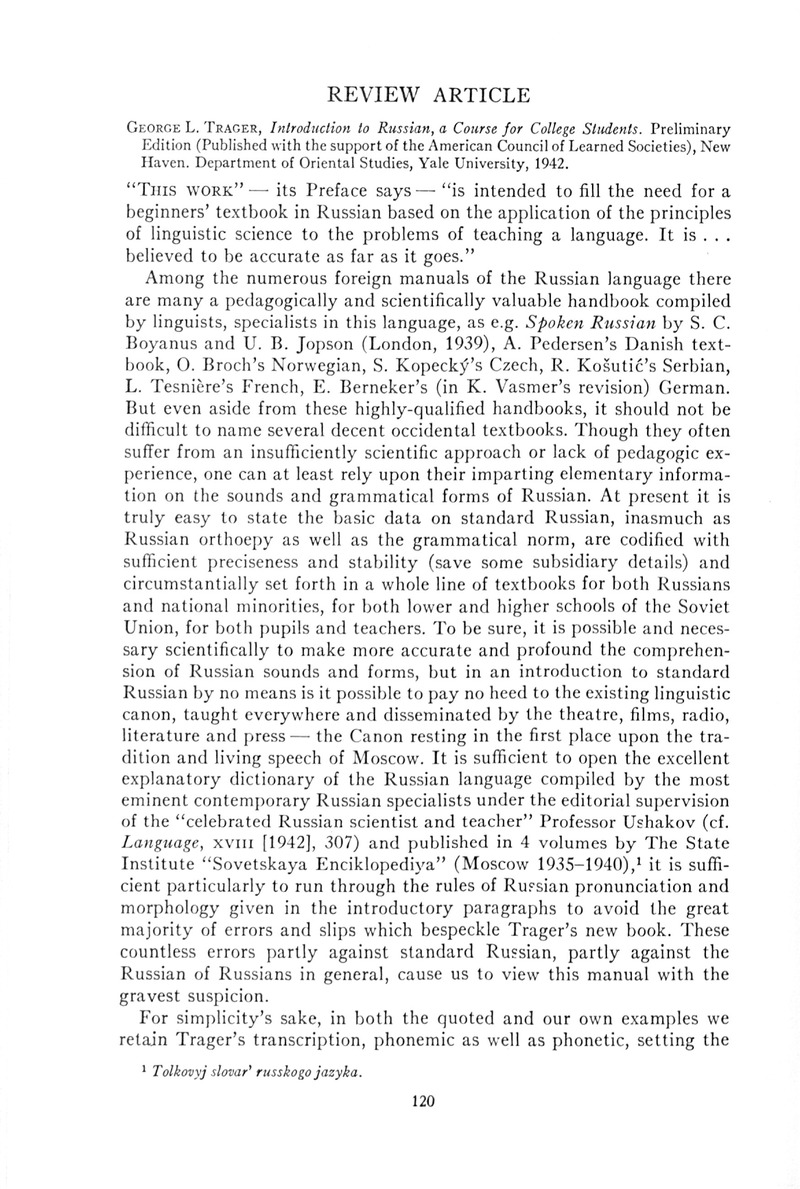Article contents
Review Article
Published online by Cambridge University Press: 05 June 2017
Abstract

- Type
- Review Article
- Information
- Slavonic and East European Review American Series , Volume 3 , Issue 3 , October 1944 , pp. 120 - 133
- Copyright
- Copyright © Association for Slavic, East European, and Eurasian Studies 1944
References
1 Tolkovyj slovar’ russkogo jazyka.
2 Obnorski, S., Imennoe sklonenie v sovremennom russkotn jazyke (Leningrad, 1927), p. 270 Google Scholar.
3 (a) chitirjòx-arshínniy, sarvjì-golova; (b) paravòza-straítjiljniy; (c) sjèvjira-zápat.
4 This term usually denotes the Russian consonants produced by flattening the mouth resonator and subsequently marked by a raised timbre, cf. Boyanus, S. C., A Manual of Russian Pronunciation (London, 1935), p. 13 ffGoogle Scholar.
5 istezaju, svetogo, vezati, etc.
6 Shakhmatov, A., Očerk sovremennogo russkogo literaturnogo jazyka (Leningrad, 1925), p. 70 Google Scholar.
7 Durnovo, N., Vvedenie v istoriju rnsskogo jazyka (Brno, 1927), p. 108 Google Scholar.
8 Trager has either inaccurately rendered the pronunciation, or he has run up against a provincial archaic form móshniy, which goes back to the local Russian móchnoy, and not to the Church-Slavonic móshchniy, as the author avers.
9 Tolkovyj Slovar', I, p. XXXIII; R. Košutić, Gramatika ruskog jezika (Petrograd, 1919), p. 127.
10 This dialectal verb 1ópatj is humorously apperceived in present-day standard Russian as having the meaning “to gorge, stodge, stud, snap” and it figures in parodies on the “Russian” slang of Odessa's denizens: anji 1ópayut, ash tarjelki lopayut (they gorge, 1. that even plates crack; 2. they stodge even the plates).
11 Cf., frequently baked, once (upon a time) baked, never baked.
12 E.g., how to apply Trager's definition of the instrumental as the case “of means or instrument” (127) to such instances as: bil saldátam, smatrjél vó1kam, ubjít vragóm?
- 3
- Cited by


